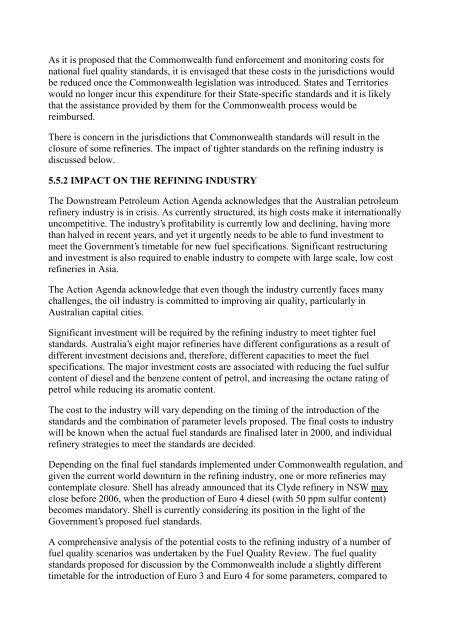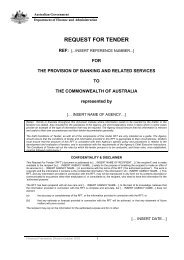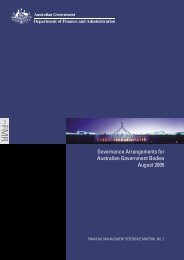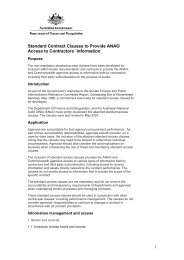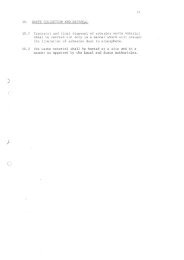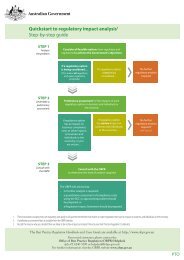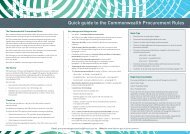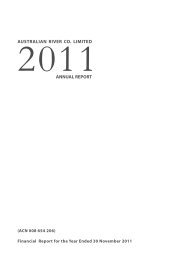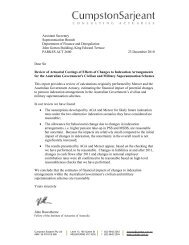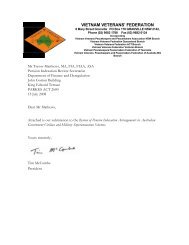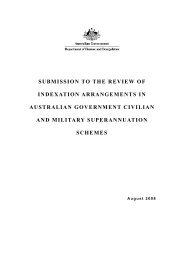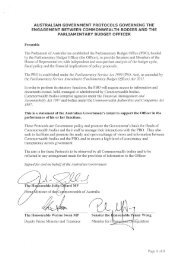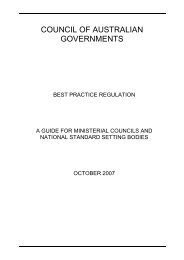National Fuel Quality Standards Regulation Impact Statement 1 ...
National Fuel Quality Standards Regulation Impact Statement 1 ...
National Fuel Quality Standards Regulation Impact Statement 1 ...
Create successful ePaper yourself
Turn your PDF publications into a flip-book with our unique Google optimized e-Paper software.
As it is proposed that the Commonwealth fund enforcement and monitoring costs for<br />
national fuel quality standards, it is envisaged that these costs in the jurisdictions would<br />
be reduced once the Commonwealth legislation was introduced. States and Territories<br />
would no longer incur this expenditure for their State-specific standards and it is likely<br />
that the assistance provided by them for the Commonwealth process would be<br />
reimbursed.<br />
There is concern in the jurisdictions that Commonwealth standards will result in the<br />
closure of some refineries. The impact of tighter standards on the refining industry is<br />
discussed below.<br />
5.5.2 IMPACT ON THE REFINING INDUSTRY<br />
The Downstream Petroleum Action Agenda acknowledges that the Australian petroleum<br />
refinery industry is in crisis. As currently structured, its high costs make it internationally<br />
uncompetitive. The industry’s profitability is currently low and declining, having more<br />
than halved in recent years, and yet it urgently needs to be able to fund investment to<br />
meet the Government’s timetable for new fuel specifications. Significant restructuring<br />
and investment is also required to enable industry to compete with large scale, low cost<br />
refineries in Asia.<br />
The Action Agenda acknowledge that even though the industry currently faces many<br />
challenges, the oil industry is committed to improving air quality, particularly in<br />
Australian capital cities.<br />
Significant investment will be required by the refining industry to meet tighter fuel<br />
standards. Australia’s eight major refineries have different configurations as a result of<br />
different investment decisions and, therefore, different capacities to meet the fuel<br />
specifications. The major investment costs are associated with reducing the fuel sulfur<br />
content of diesel and the benzene content of petrol, and increasing the octane rating of<br />
petrol while reducing its aromatic content.<br />
The cost to the industry will vary depending on the timing of the introduction of the<br />
standards and the combination of parameter levels proposed. The final costs to industry<br />
will be known when the actual fuel standards are finalised later in 2000, and individual<br />
refinery strategies to meet the standards are decided.<br />
Depending on the final fuel standards implemented under Commonwealth regulation, and<br />
given the current world downturn in the refining industry, one or more refineries may<br />
contemplate closure. Shell has already announced that its Clyde refinery in NSW may<br />
close before 2006, when the production of Euro 4 diesel (with 50 ppm sulfur content)<br />
becomes mandatory. Shell is currently considering its position in the light of the<br />
Government’s proposed fuel standards.<br />
A comprehensive analysis of the potential costs to the refining industry of a number of<br />
fuel quality scenarios was undertaken by the <strong>Fuel</strong> <strong>Quality</strong> Review. The fuel quality<br />
standards proposed for discussion by the Commonwealth include a slightly different<br />
timetable for the introduction of Euro 3 and Euro 4 for some parameters, compared to


